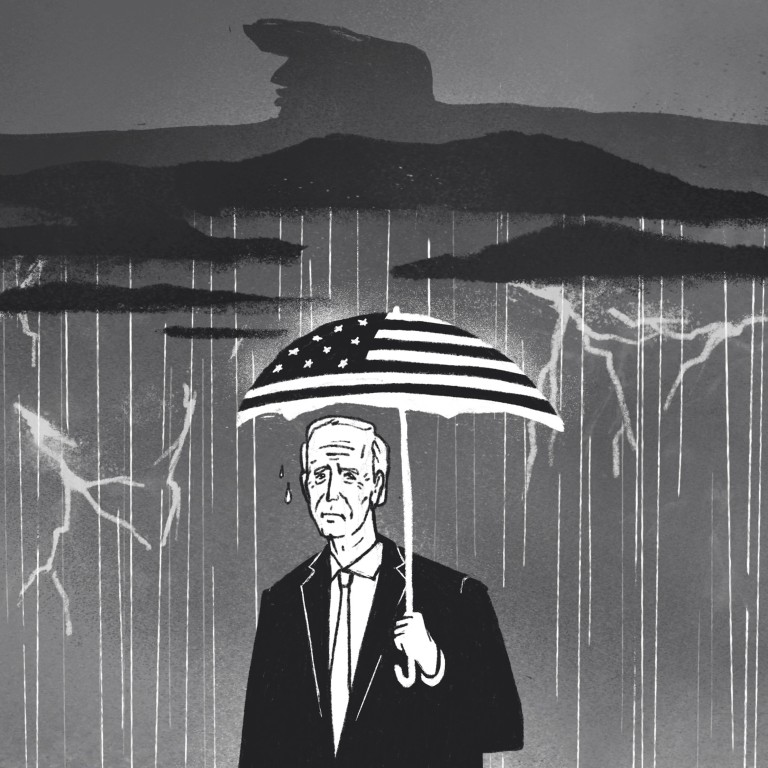
Dis-United States: Biden’s team faces reality of rule during Trumpism
- A nation divided by voters may be difficult to bring together under a new president if it is unable to agree on what constitutes truth
- The support base of Donald Trump has shown no sign of weakening, against a backdrop of growing partisanship and mistrust of institutions
Yet the very election that gave him the job shows just how wide the divide has become and the huge scale of the challenge.
In one narrative, the Democratic candidate pulled ahead as votes were counted and eventually won – a result broadly acknowledged by state officials working on the elections, legal scholars and the mainstream news media.
In yet another, out on the conspiracy fringes, the entire election is a military sting operation to root out Democrat corruption.
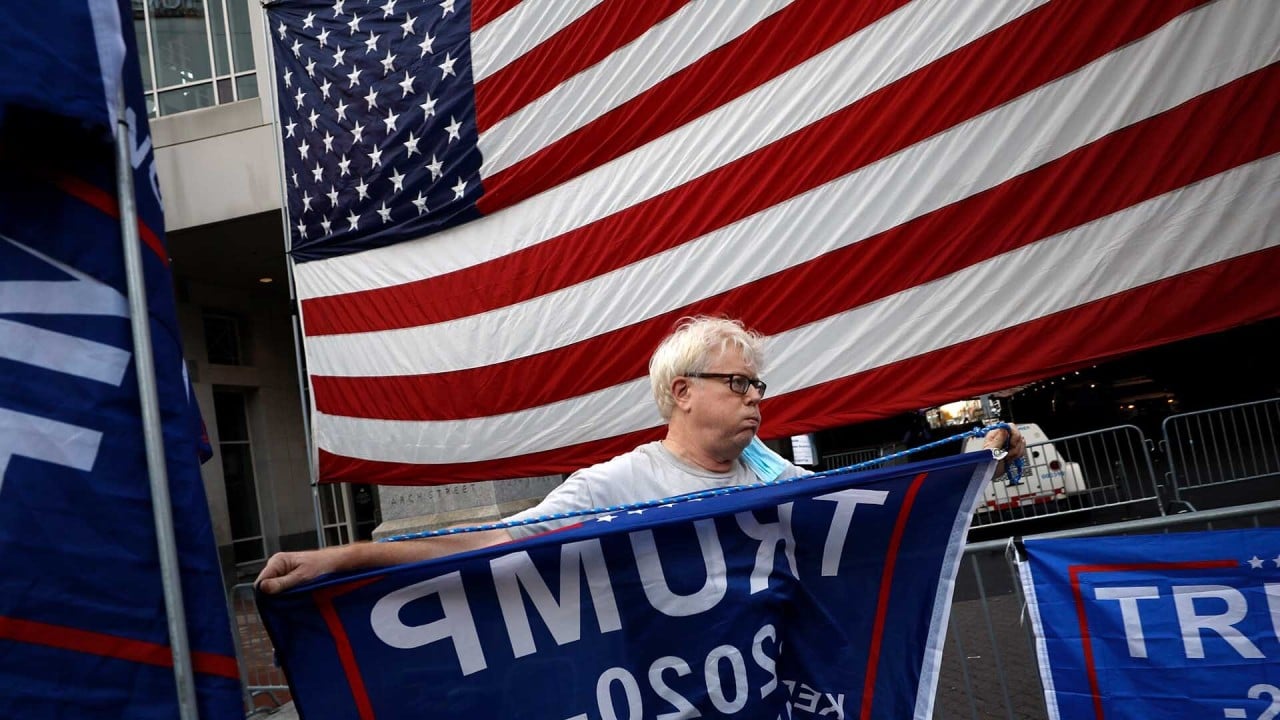
02:01
Disbelief among Trump voters in Pennsylvania as Pence says US presidential election ‘ain’t over’
“If [Trump] continues to say that the election was rigged and that it was stolen, then it seems likely that an appreciable part of his voting base will feel that the next president – if that is Biden – is actually a usurper and that the government is illegitimate,” said David Smith, a University of Kansas sociology professor who researches Trump’s voter base.
“That doesn’t bode well for patching up differences.”
One nation?
Both Biden and Trump broke the record for the most votes cast for a US presidential candidate. As of Thursday, Biden had won the support of more than 77 million Americans and Trump over 72 million, or 10 million more than when he won the presidency in 2016.
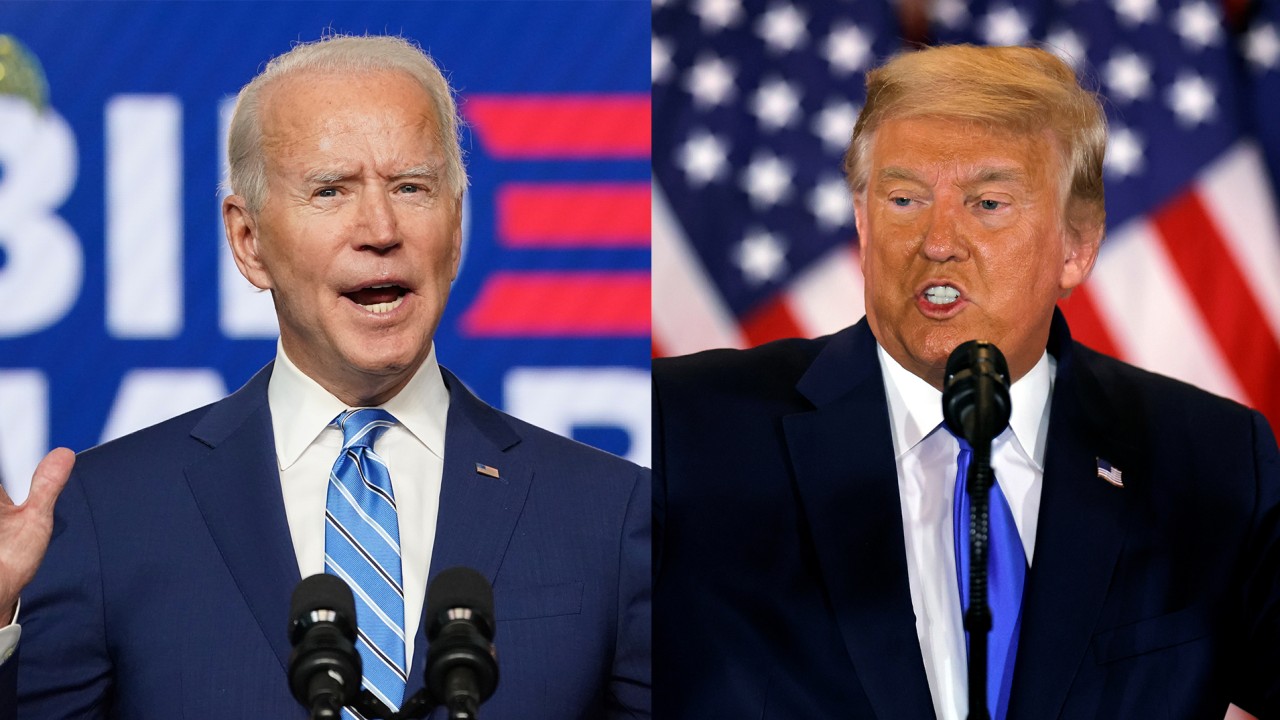
08:48
US presidential election 2020: legal challenges as momentum shifts from Trump to Biden
Back then, the real estate mogul with no political experience was a dark horse with anti-immigrant rhetoric and a populist platform. His win was written off by some analysts as an aberration.
“What has been striking about Trump’s support in his base from the beginning has been how rock-solid it has tended to be,” said Smith, adding that this was despite expectations that Trump would lose significant support from white women and seniors this year.
“I don’t see much evidence that it has weakened,” he said.
According to Smith’s research on the last election, voters who support Trump do so not because of the traditional “kitchen table issues” like the economy, but rather based on his “prejudices”.
This squares with what University of Florida political communication scholar Myiah Hutchens describes as a phenomenon in which “politics is becoming more and more entrenched with social identity”.
“This idea of thinking of politics as ‘us versus them’ is something that we have seen increase,” she said.
What happens if Donald Trump refuses to concede defeat?
As in 2016, Trump’s backers remain primarily a coalition of white men, white voters without a college degree and those living in small towns and rural communities, according to an Associated Press analysis of a survey by the National Opinion Research Centre at the University of Chicago.
Biden won support from women, college graduates, young people and black, Hispanic and Asian voters, according to Associated Press’ VoteCast. But Trump may also have made inroads into black and Latino communities, according to a comparison of 2016 and 2020 exit polling by Edison Research.
Maresa Strano, a policy analyst with the New America think tank in Washington, cautioned about the accuracy of exit polling, especially when so many voted by post.
But the data did appear to indicate that “Trump did a better job appealing to voters of colour than perhaps he was given credit for in the run-up”, she said. Overall, that Trump was able to mobilise so many voters indicates one thing, according to Strano: “Trumpism is here to stay.”
Distorted reality
Besides Trumpism sticking around, the man himself seems intent on staying in the White House, mounting legal challenges and calls for recounts in multiple states.
“I won the election, got 71,000,000 legal votes. Bad things happened which our observers were not allowed to see. Never happened before. Millions of mail-in ballots were sent to people who never asked for them!” the president tweeted on November 7.
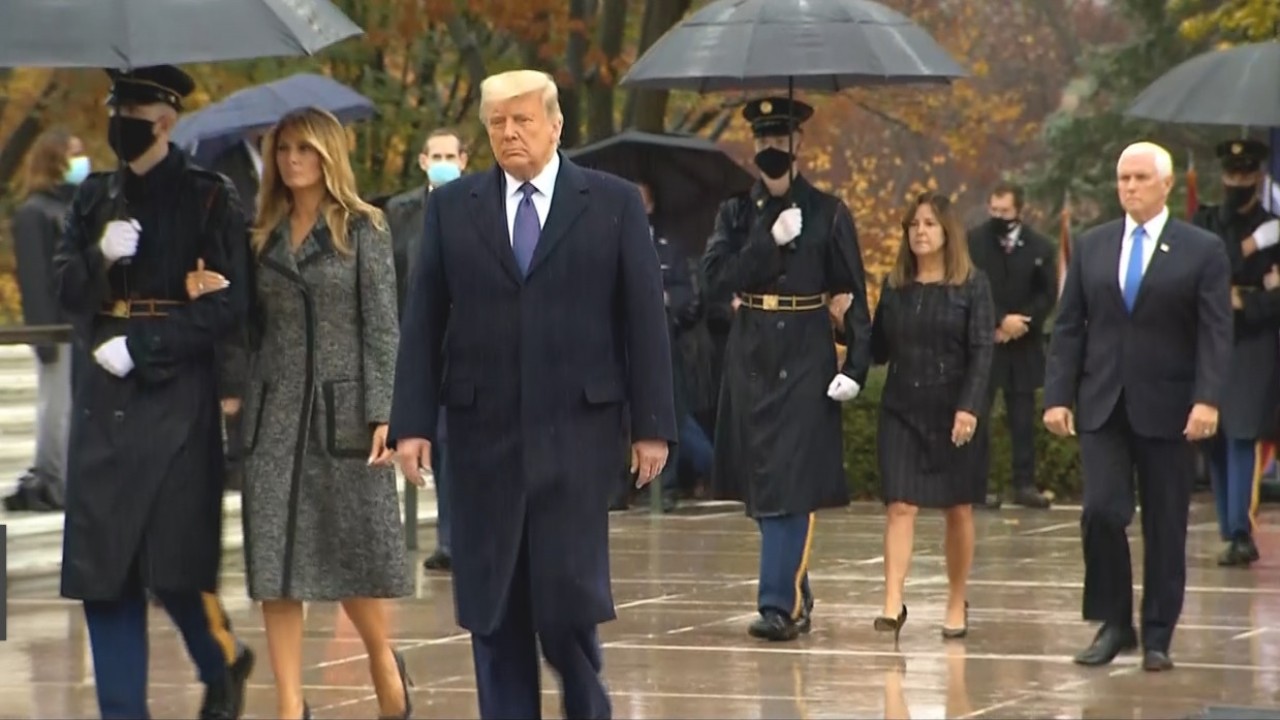
03:02
Trump makes first public appearance since losing US presidential election to join Veterans Day event
But the president’s claims and those of his allies landed in a digital media environment in which credible news outlets are joined by a multitude of hyperpartisan news sites, pundits and social media influencers. Misinformation purporting to back Trump’s claims began to spread.
“We are in a situation now where there are multiple ‘realities’, and each ‘reality’ has its own news ecosystem, where it can provide itself with all of the information it needs without challenges,” said Rachel Moran, a postdoctoral scholar at the University of Washington’s Information School.
For months, Moran and her colleagues tracked the emergence of misinformation that was meant to delegitimise election results, as part of a coalition of research entities called the Election Integrity Partnership.
“It’s been pretty overwhelming to see the game play out exactly as we expected,” she said.
One example: a photo purporting to show ballot dumping in the 2020 election shared on conservative news sites, picked up by pundits and influencers, and amplified further.
When a fact check showed the “ballots” were actually legally discarded ballot envelopes from 2018, the incorrect story continued to spread.
US elections 2020: mail-in votes are not rigged, and other fact checks
But Hutchens said that misinformation could exist on both sides of the partisan divide and that people who consumed hyperpartisan media existed more on the fringes rather than in the mainstream. A case in point may be the elections.
A Reuters/Ipsos national opinion survey last week, found that 79 per cent of American adults believed Biden had won the White House.
Another 13 per cent said the election had not yet been decided, 3 per cent said Trump had won and the rest said they did not know. But the results showed a split on party lines: almost every Democrat said Biden had won, compared with about six in 10 Republicans.
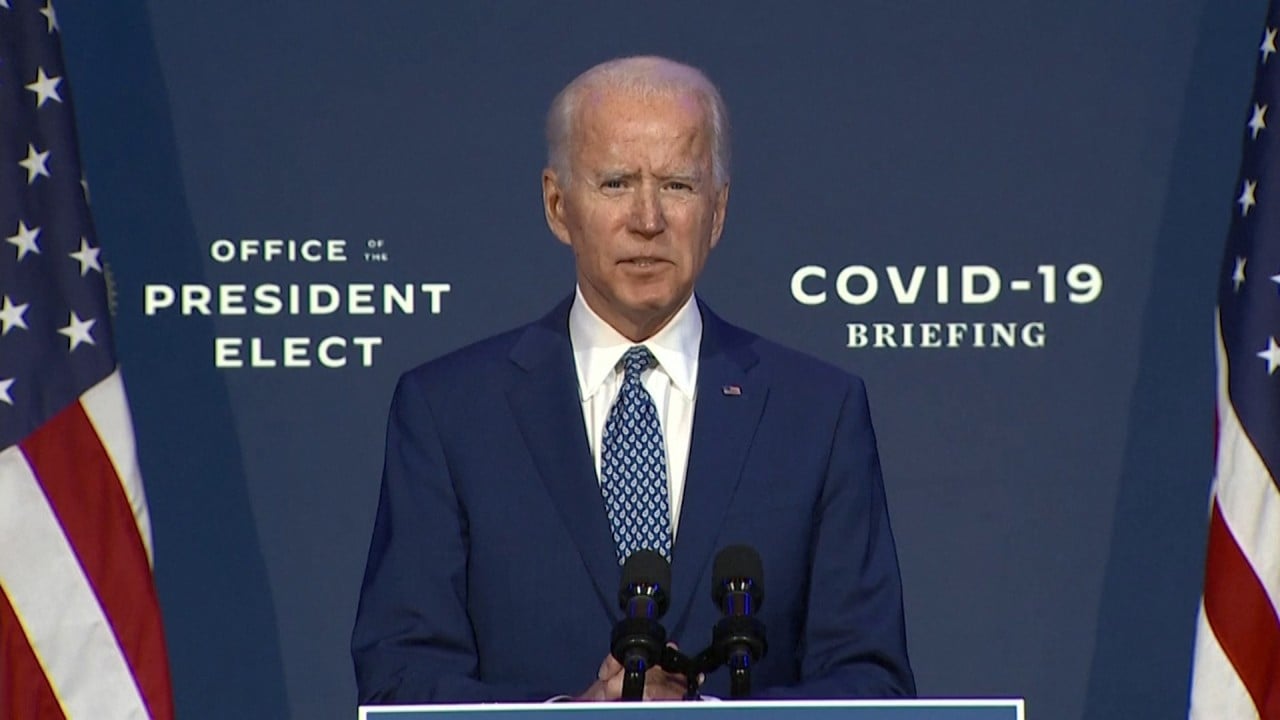
02:25
Biden calls for Americans to wear masks, as US faces 'dark winter' amid pandemic
Trump lingers
Strano said the “lingering effects” of Trump’s rhetoric and affection for conspiracy theories “will undoubtedly challenge the Biden White House”.
“Biden will need to contend with large groups of Americans that will reject, perhaps violently, further Covid mitigation measures should they be necessary,” she said.
This ties in more broadly with a growing mistrust of institutions in America, experts say.
Smith pointed to the example of some Americans not trusting the word of scientists, for example when it came to advice such as wearing masks to prevent the virus’ spread.
“People who think that it’s obvious that epidemiologists are giving us the unvarnished truth – that’s just one way of looking at the world,” he said.
“It isn’t that [others] don’t in their own minds believe in facts and science, it’s that they deeply mistrust institutions and they deeply mistrust experts who they think are trying to manipulate them.
“It goes beyond mistrusting the other party, it’s mistrusting every institution that seems to be aligned with [their] world view. That runs deep.”

